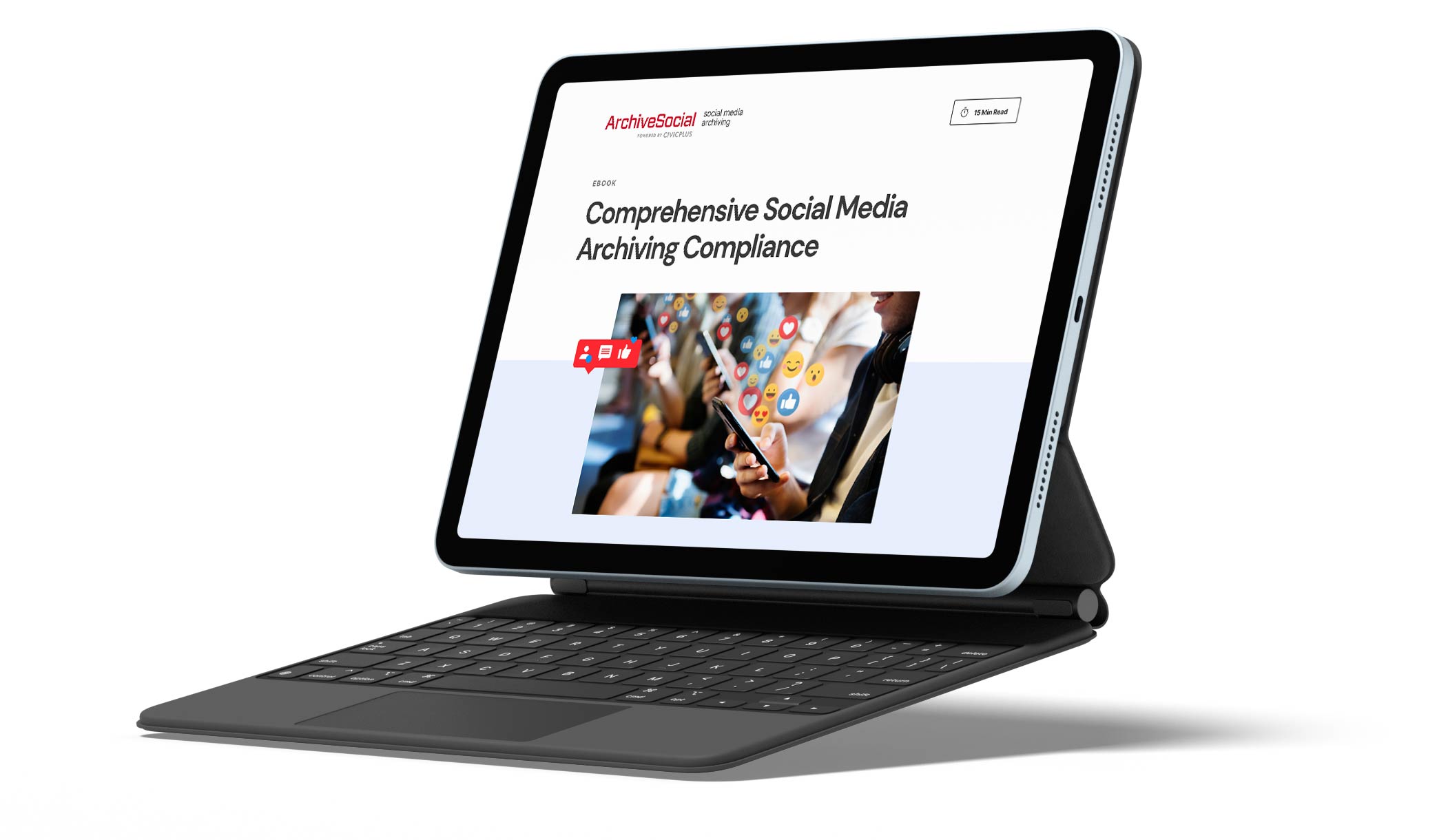Why Archive Your Social Media Content?
To comply with public records laws, government agencies and public entities must retain all records of social media communications and interactions, and be able to present them for public records requests.
Schedule a Risk-Free Demo - See How You Can Archive Social Media Records
Top Reasons to Archive Your Social Media Content
Social Media Records Are Public Records
1. Social Media is a Public Record
In the USA, government social media is considered public record in all 50 states. School systems, government bodies, and law enforcement agencies have an obligation to comply with open record laws.
2. Comments are Critical
Your archiving strategy needs to include not just your posts but comments as well.
3. You Can’t Rely on Social Networks
Social media networks were built to facilitate the online connection of billions of private residents. They are not built for, nor bound to, public records laws, and have no legal obligation to retain your records.
4. “Screenshots” are Not Compliant
Manual processes are inefficient for both capturing and searching records, and often don’t suffice in court. Challenges with frequency of capture, hidden/deleted/revised content, and no meta-data to prove authenticity of records all leave agencies with significant risks.
5. You WILL Need to Produce Records
You are required by law to be able to produce social media content if there is a public records request for it. Having a system in place that captures all content and meta-data is the only way of ensuring compliance with social media regulations and compliance laws.
Public Records Laws and Social Media
The Legal Landscape of Social Media Record Retention
Public record laws state that public entities are responsible for responding to FOIA or Open Records requests for social media and website content. While each of the 50 United States has specific and unique laws on public records, social media is considered public record in every state. Accurate recordkeeping for compliance includes preserving posts, meta-data, comments (even if edited or deleted), and original content exactly as it happened across all of your social media platforms and website pages.

Without Social Media Archiving, complying with these laws could cost thousands a year, and endless hours of time. But managing your entire online presence doesn’t have to be hard. By automatically capturing and preserving your data in one secure location with active social media archiving, you’ll never miss a post or comment, and can quickly find and respond to records requests, in the exact formats you need. Social Media Archiving helps you save dramatically on public records costs, and increases your entity’s transparency.
Social Media is Considered Public Record in all 50 United States
Public Agencies Must Comply With Open Records Laws
View Your State Regulations
Use the interactive map to select your state and discover its public records and social media record retention laws today.
Social media archiving is the only way to maintain complete social media records and properly respond to records requests.
Public records regulations apply to social media communications in all 50 states.
Public entities must be prepared to respond to public records requests for all their public and ancillary pages on Facebook, Twitter, and other social networks. Archiving ensures compliance with public records laws, FOIA/open records requests, eDiscovery and litigation readiness, GDPR & CCPA, and social media retention requirements.
How Social Media Archiving Works
Download the Solution Overview to see how Social Media Archiving helps you achieve public records compliance. Automatically retain every post, photo, comment and more from your social pages for record retention.
Download the Solution Overview
As a public entity, we are required by law to be able to reproduce that information if there is a public request for it, an open records request. That is not something we are capable of doing without having some type of system in place that actually can go out and get what they call the metadata.
April Warden
County Administrator
Seward County, Kansas